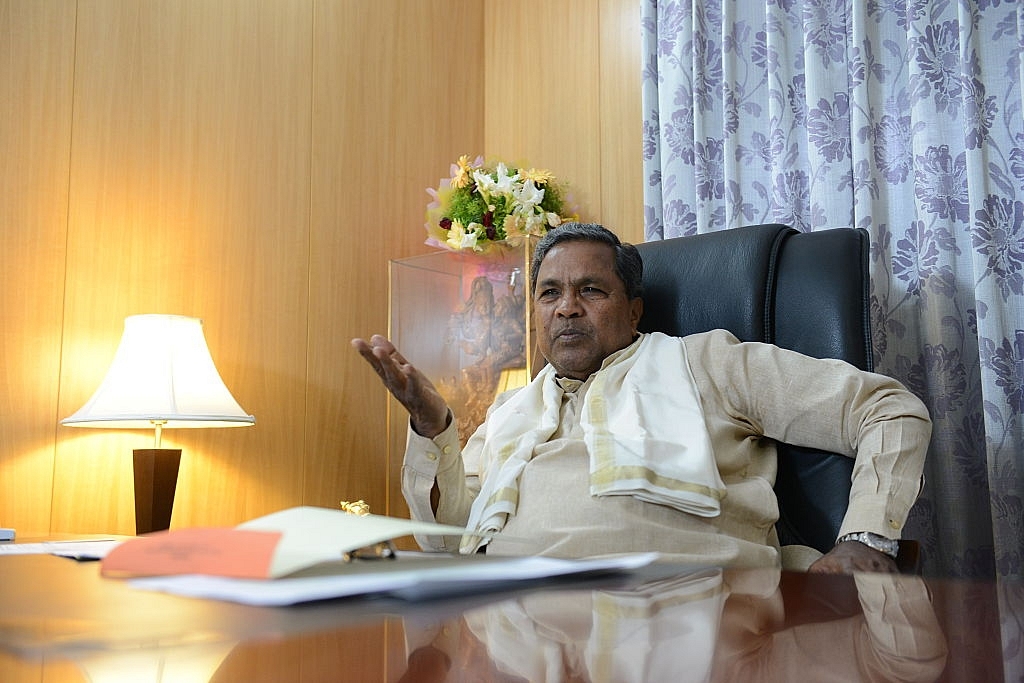Insta
Siddaramaiah’s Stale ‘Secularism’: Condemns Pejawar Seer’s Call For Minority Rights For Majority

Karnataka Chief Minister Siddaramaiah (Hemant Mishra/Mint via Getty Images)
In a show of the stale old form of secularism, Chief Minister of Karnataka Siddaramaiah on Sunday (26 November) “condemned” the demand by the Pejawar matha’s seer Vishwesha Theertha to accord the constitutional rights guaranteed to minorities to the majority Hindu community as well, reported the News Minute.
Without naming the seer, the chief minister said that his statement was meant to “sow the seeds of caste and communal hatred”. He said, “The directive principles of the Constitution guaranteed equality for every religion. Only those who have no faith in the Constitution are advocating changes to it .”
Vishwesha Theertha’s statements sparked off protests in various parts of the state with activists claiming he had insulted the state. Litterateur Chandrashekar Patil reacted by saying that he would be removed from the matha.
Vishwesha Theertha had earlier said that he wanted the “benefits and privileges guaranteed to Dalits and minorities” in the Constitution of India to be extended to non-minority communities. He had asked if the Centre could amend the Constitutuon on the matter.
"There are different laws for the majority and the minority people in the Constitution. Hence, there is nothing wrong in making amendments to the Constitution of India," he said.
However, he isn’t wrong. The Constitution, does in many ways differentiate between minorities and non-minorities and accords the former with more privileges.
The recent Lingayat agitation, where members of the Lingayat community in the state demanded the status of a separate religion, had more to do with this unfavourable legal regime than with Hinduism itself.
The root cause of such rising sentiments is Article 30 of the Indian Constitution which gives “all minorities, whether based on religion or language,... the right to establish and administer educational institutions of their choice”. In effect, this means that minority educational institutions are immune from intervention, and takeover, from the state.
Similarly, the ninety-third amendment to the Constitution mandates stringent requirements for schools such as minimum land, facilities and also forces them to set aside 25 per cent of their total strength for students belonging to economically backward sections of society. These requirements, however, do not exist for minority institutions, thus giving them a free run while the burden of the Right to Education Act falls on Hindu schools.
Another feature of the Indian republic is that only Hindu religious institutions are controlled by the government. This is eerily reflected in the statement made by Chandrashekar Patil.
Also Read:
Introducing ElectionsHQ + 50 Ground Reports Project
The 2024 elections might seem easy to guess, but there are some important questions that shouldn't be missed.
Do freebies still sway voters? Do people prioritise infrastructure when voting? How will Punjab vote?
The answers to these questions provide great insights into where we, as a country, are headed in the years to come.
Swarajya is starting a project with an aim to do 50 solid ground stories and a smart commentary service on WhatsApp, a one-of-a-kind. We'd love your support during this election season.
Click below to contribute.
Latest